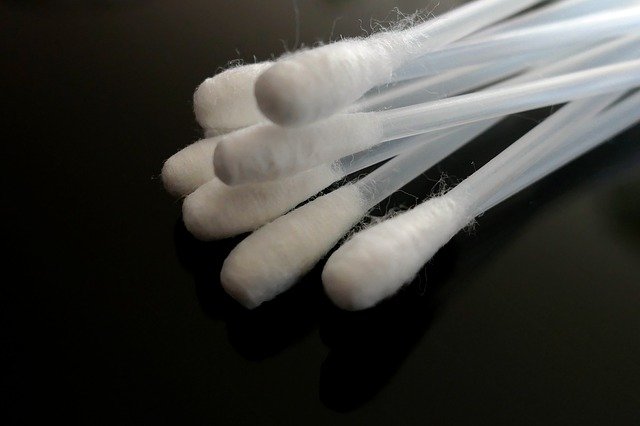We sometimes overlook proper ear hygiene until there is a problem, but this is not always a bad thing. Because our ears are designed to self-clean, for the most part, not washing them protects us from the dangers of excessive cleaning. Even so, proper hygiene is necessary. This includes keeping dirt, dust, and water out of our ears and eliminating any accumulated wax. Thus, how frequently should you clean your ears? Is there a universally accepted advice, or does it vary according to individual circumstances? A few responses follow.
In an ideal scenario, you should never clean your ears, but this is not always possible, and some people are more prone to earwax buildup than others. You can have an audiologist examine you to determine if you have an impaction, but if your hygiene is good and your outer ear is clean, you can generally avoid them.
The issue arises when your ears are not sufficiently checked. While earwax is necessary to protect your ears, it can occasionally irritate them, resulting in earaches, hearing loss, and – rather commonly – tinnitus. Tinnitus is a ringing in the ears that is merely annoying and can impair one’s quality of life. What is your frequency of ear cleaning? To be honest, never in the ideal world. Ears are self-cleaning, and the only time you should approach the inside of your ear is if it is itchy, obstructed, or causing you discomfort, and even then, you should consult an audiologist.
When your ears are clogged, it can be difficult to hear, and you may consider ear cleaning as a simple solution. While you may manage moderate cases of wax accumulation at home, improper ear cleaning can result in lasting and irreversible harm. We discuss what you should and should not do, refute some popular fallacies, and reveal the best home method for cleaning your ears.
Table of Contents
What is the recommended frequency of ear cleaning?
While ear canals should not be cleaned on a daily basis for the ordinary person, you can gently clean the outside of your ears to keep them feeling clean. Simply keep in mind that cleaning your ears too frequently can result in an infection and may even raise your risk of developing earwax impaction.You should only clean your ears if a buildup of wax is impairing your hearing or if you have symptoms such as itching, tinnitus, dizziness, or pain.It’s critical to understand that certain people are more prone than others to earwax buildup. If you believe that more frequent cleaning services will help you, contact a specialist to discuss your alternatives.
Contrary to popular belief, earwax actually helps prevent infection in the ear. It moisturizes and disinfects the ear canals. Ears are normally self-cleaning, so you should not have to clean them on a regular basis;but your ears can occasionally benefit from a little assistance. If you have an earwax blockage or are prone to blockages, you should consult an otolaryngologist to determine the source of these recurrent blockages and how to keep your ears clean.
When cleaning their ears, most people employ cotton swabs. The issue is that this frequently accomplishes the reverse, pushing the wax deeper into the ear canal. Using a cotton swab to clean the ear canal or eardrum can also cause injury. Once again, if earwax buildup is a frequent occurrence for you, this is something you should discuss with your ENT physician. A straightforward rule to follow is that cotton swabs should not be used to clean your ears.
At Home Cleaning of the Ears
If you have a blockage, these simple procedures may help you clear the earwax. To begin, the wax should be softened. There are over-the-counter products that contain a concentrated glycerin solution that can assist in the breakdown of the wax. Alternatively, you can fill an eyedropper with baby oil or hydrogen peroxide and inject a few drops into the ear.
Allow the oil to sit in your ear canal for up to two days before squirting warm water into it using a rubber syringe. Again, this syringe is available at your local drugstore as part of a wax removal kit. After rinsing the ear, dry the outer portion of the ear using a cloth. If you have a history of ear infections, you may wish to gently dry the ear with a blow dryer.
How Frequently Should Ears Be Cleaned?
While you can clean your ears with cotton swabs, this is an unneeded and potentially hazardous technique. Earwax plays a crucial role in preventing dirt, bacteria, and other debris from accessing the inner ear. Additionally, it acts as a natural moisturizer, keeping the skin inside the ear from drying up. Earwax accumulation is not indicative of poor hygiene, and there is no reason to attempt to remove it. Indeed, the majority of wax is naturally expelled from the body through jaw movements such as chewing, which means that the majority of people will never need to clean their ears.
Certain individuals generate an excessive amount of earwax
Occasionally, your ears create an excessive amount of earwax, which cannot be expelled quickly enough. Alternatively, you may have a narrow ear canal, obstructing earwax evacuation. Hair that grows in or around our ears can also obstruct the passage of earwax.As a result, there is no one-size-fits-all solution to the question, “How frequently should I have my ears cleaned?” It occurs once a year for some, while others experience it four times a year. The good news is that your ear nurse will assist you in determining the frequency with which you should clean your ears.
What is the recommended frequency of ear cleaning?
Ear health is rarely a consideration in people’s everyday hygiene regimens for one simple reason: it is unnecessary. In most circumstances, ear, nose, and throat doctors advise patients to leave their ears alone unless they have an extraordinary buildup of wax.


